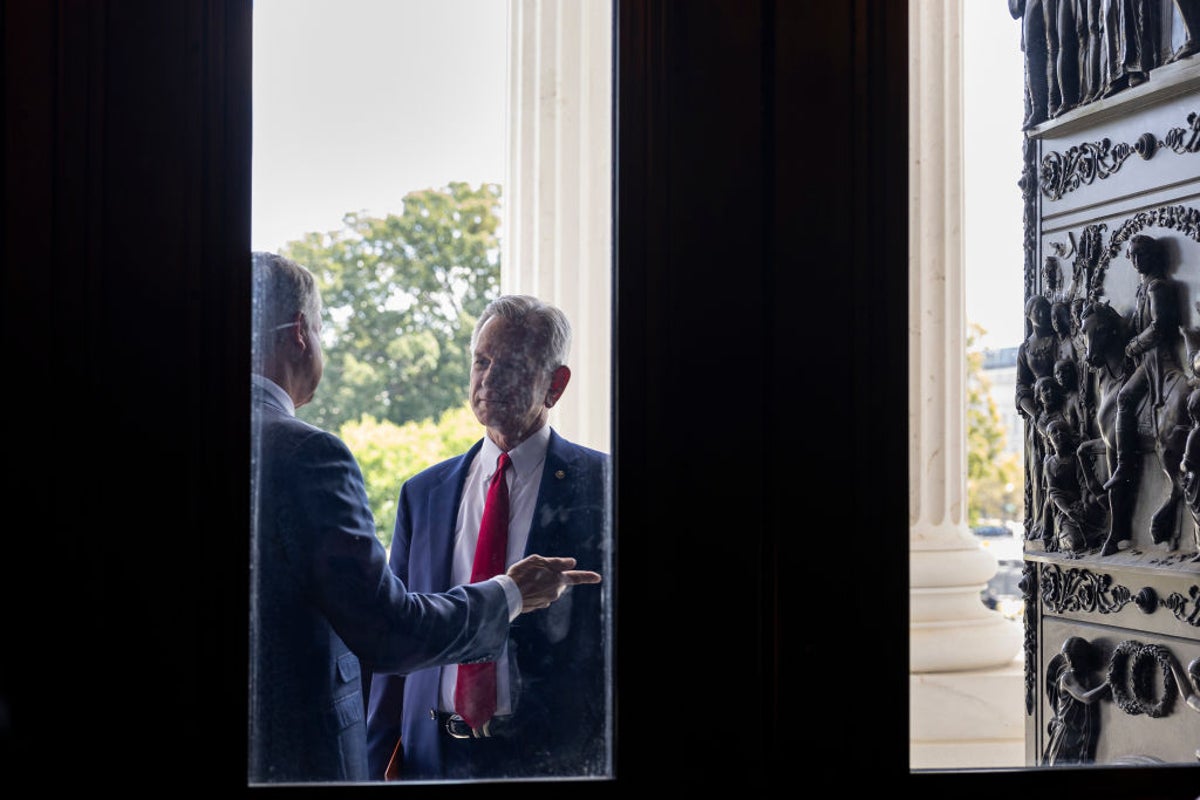
Democrats in the US Senate moved on Wednesday to confirm three generals to three posts on the Joint Chiefs of Staff, defying the freeze that Republican Sen Tommy Tuberville has put on military promotions.
Gens Eric Smith, Randy George and Charles Brown are expected to be confirmed by unanimous consent to their respective positions, with Mr Brown taking over as chairman of the panel. Mr Tuberville has reportedly told journalists that he will not block their confirmations to force a floor vote.
The Senate remains capable of confirming individual military promotions through such a process, though it would be time-consuming due to the sheer number of promotions. Senate Majority Leader Chuck Schumer has squared off against Mr Tuberville over the latter’s efforts, but to no avail; the move Wednesday was made as an exception due to the necessity of keeping the Joint Chiefs of Staff at capacity.
Mr Tuberville’s objections to the promotions stem from his desire to protest a Department of Defense policy allowing service members and their families to be reimbursed if they are required to travel to seek abortion care due to state laws prohibiting the practice in some areas. His objections are opposed by Senate GOP leadership, but he has remained adamant that he will not drop them until the policy is ended.
The White House cheered the news on Wednesday but indicated that DoD leadership would keep up the pressure on Mr Tuberville to end his hold on promotions.
“This particular move, while good for those three officers, and certainly good for two of the branches of the armed services and the Joint Staff and, and for Secretary [Lloyd] Austin to have a Senate-confirmed Chairman of the Joint Chiefs here before General Milley retires, it doesn't fix the problem or provide a path forward for the 316 other general and flag officers that are held up by this ridiculous hold,” said John Kirby, spokesman for the national security council.
"If they have to hold a vote on every single individual [nomination], it's going to take something more than 700 hours, that's not only unrealistic, it's dangerous for our national security,” he said. “So again, both of these three are potentially here moving forward, that's good for the United States Marines, certainly good for the United States Army and good for the Joint Staff. But it ain't good enough for US national security. These holds need to be lifted — all of them".
Abortion policy has become somewhat of a popular political football for both parties in the wake of the Supreme Court decision in Dobbs vs Jackson Women’s Health last year.
The decision, which chucked out several decades’ worth of precedent protecting the right to an abortion at the federal level, led to a scramble on both sides to gauge Americans’ views on the matter and respond accordingly. As a result, the Democratic Party opted to take a number of steps to paint itself as a champion of abortion rights — the DoD policy in question being just one example of this.
Republicans, meanwhile, have been divided on the issue of abortion. Some want to enact a federal ban after 15 weeks, rallying behind legislation crafted by Sen Lindsey Graham. Others want to allow state governments to decide the issue. Many more want their party to simply stop talking about it at all, worried that vocal support for more restrictive policies, particularly in deep-red states, will harm the party’s chances with moderates nationally.
“The Senate will overwhelmingly vote to confirm them, and these three honorable men will finally be able to assume their positions,” Mr Schumer said Wednesday in a Senate floor address. “And the abortion policy that Sen Tuberville abhors will remain in place. Sen Tuberville will have accomplished nothing.”







